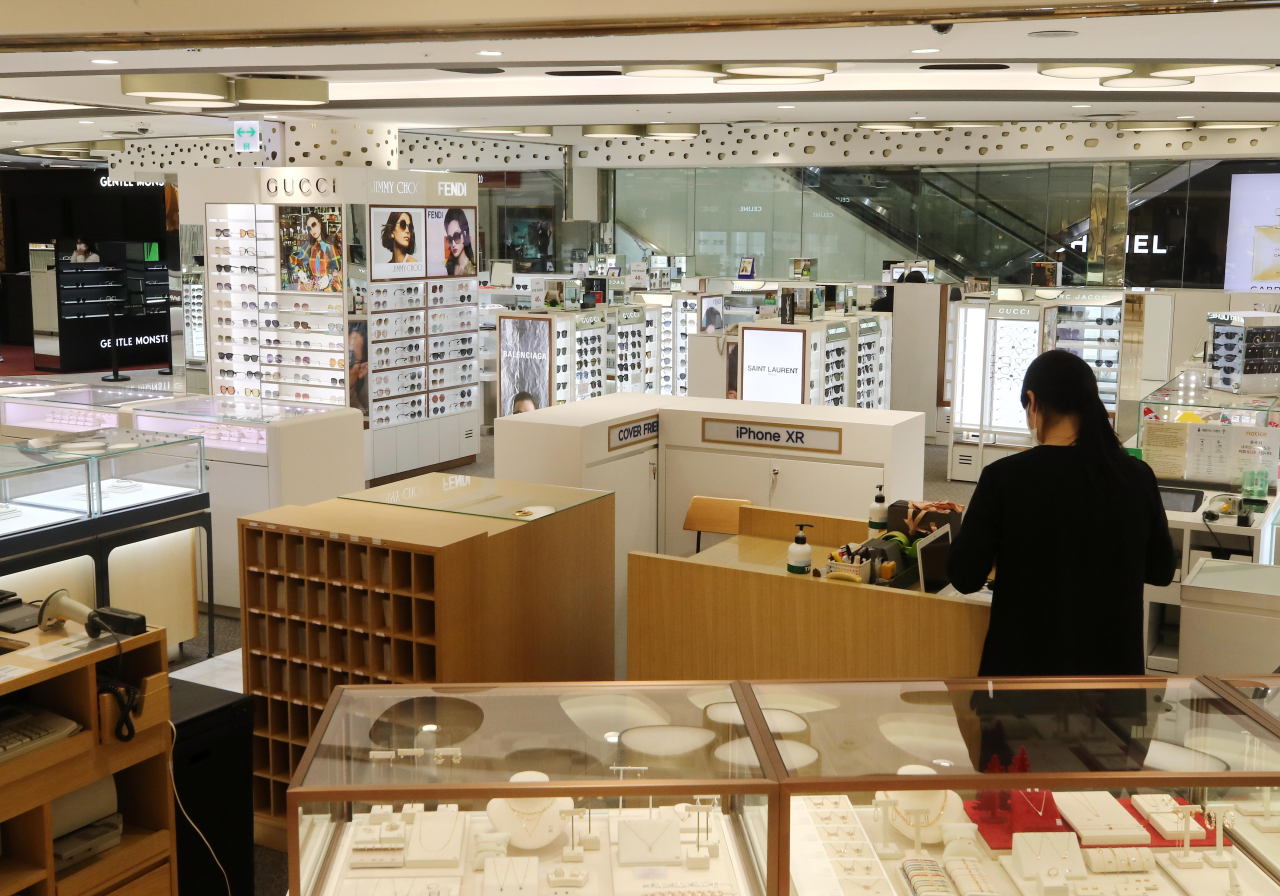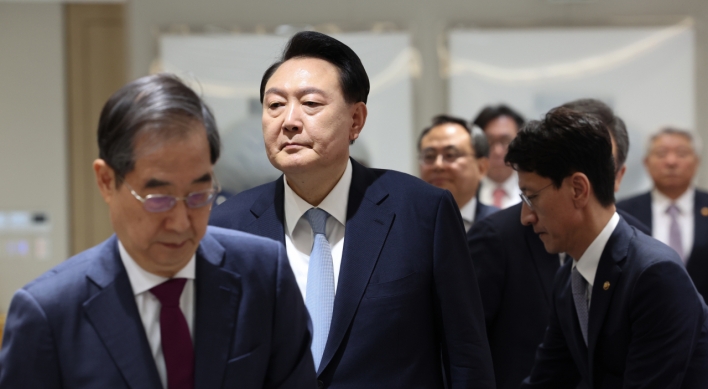
SEJONG -- Korean businesses, including those in the manufacturing and service industries, saw the index for their retail sales decline sharply last month despite brisk industrial output, state data showed Thursday.
Deputy Prime Minister and Finance Minister Hong Nam-ki also commented on the weakening sentiment index over private consumption, picking negative factors like bolstered quarantine against the omicron variant of COVID-19.
According to Statistics Korea, the nation’s retail sales index -- a barometer for consumption by the household sector -- posted 119.1 in November, down 1.9 percent from 121.4 a month earlier. The figures were calculated under the assumption that the index was 100 in 2015.
It marked the highest drop since the index fell by 6.1 percent in July 2020, when the pandemic dealt a severe blow to the economy.
Given a gradual recovery in the consumption index with a positive growth of 2.4 percent in September and 0.1 percent in October, the drop in November is posing worries over possible inventories.
By item, retail sales fell in home appliances, mobile-computer devices, clothing, sports goods, automobile fuel and food and beverage.
Large discount chains, which make up a large portion of household consumption, recorded a noteworthy decline of 10.4 percent. The index dropped by 1.5 percent among both department stores and convenience stores.
Though duty-free shops posted positive growth of 13.3 percent, the index was broadly calculated before the omicron variant hit the nation.
A Statistics Korea official said the decline in November retail sales index was “mainly attributed to a base effect” following high positive growth in October.
But Finance Minister Hong said the uncertainty in the wake of state quarantine measures is still lingering. “The consumer sentiment index fell for the first time in four months,” he said.
“Additionally, there are external risks, involving possible glitches in logistics for supply of industrial products and inflationary pressure, amid the spread of the omicron variant,” he said.
In contrast, the index for the industrial output climbed by 3.2 percent on-month to 114.4. The was the highest in 17 months since it posted a 3.9 percent growth in June 2020.
Manufacturers posted a 5.3 percent growth in production -- including 11.3 percent in automobiles and 4.5 percent in semiconductors.
The growth was 2 percent among services industries. Climbs were seen in lodging and food services at 5.6 percent, financial insurance products at 3 percent and art/sports/leisure products at 8.3 percent.
But Statistics Korea officials said the positive growth in industrial output was also on the back of base effect. The monthly index fell by 1.3 percent in September and 2.9 percent in October.
An interest amid the uncertainty over consumption is whether the growth of gross domestic product will reach 4 percent this year, as the Finance Ministry had predicted.
The optimistic outlook is based on the nation’s brisk exports throughout this year, while the all-time high outstanding household debt is somewhat restricting a fast rebound in consumption.
By Kim Yon-se (kys@heraldcorp.com)







![[KH Explains] How should Korea adjust its trade defenses against Chinese EVs?](http://res.heraldm.com/phpwas/restmb_idxmake.php?idx=644&simg=/content/image/2024/04/15/20240415050562_0.jpg&u=20240415144419)










![[Today’s K-pop] Stray Kids to return soon: report](http://res.heraldm.com/phpwas/restmb_idxmake.php?idx=642&simg=/content/image/2024/04/16/20240416050713_0.jpg&u=)